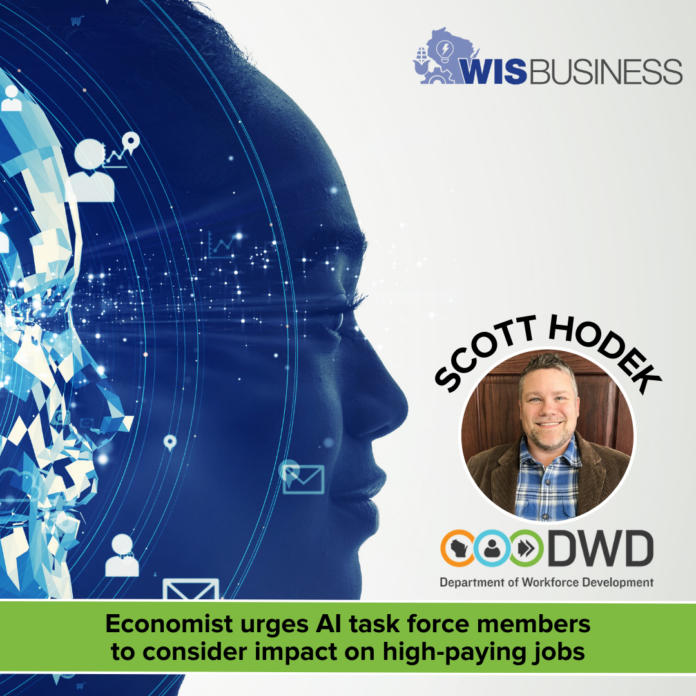A state economist is urging members of the Governor’s Task Force on Workforce and Artificial Intelligence to consider how the technology will disrupt high-paying jobs.
Department of Workforce Development Economist Scott Hodek spoke yesterday during an online meeting of the task force’s subcommittee on industries, occupations and skills. He said AI is expected to impact occupations across the income scale in Wisconsin, including those that have relatively high pay such as software developers and research analysts.
By comparison, the impact of automation — another disruptive technology — has been more focused on low-income workers like cashiers, he said.
“If it does end up replacing some of those higher-income occupations like engineers, that actually will have a pretty big impact … That’s something that this committee and all of us will probably have to keep in mind,” he said.
While the level of “exposure” to potential AI disruption is higher in certain fields such as computer science and mathematics, that doesn’t mean all of those jobs will be replaced entirely, Hodek noted. In many cases, the technology is expected to play a larger role in assisting and supporting human expertise rather than rendering it obsolete.
For some employers, using AI tools can help raise lower-performing employees up to a higher level of performance, according to Hodek, improving productivity and reducing costs. For many workers, the nature of their occupation will change as some skills become less relevant while others gain importance.
Still, Danielle Williams, assistant administrator of division of employment and training at DWD, highlighted the “strong likelihood” that many jobs will be replaced entirely or in part by both AI and automation.
“And so, employers really need to adapt to be competitive by investing in new equipment to meet market demands and customer expectations,” she said during yesterday’s meeting. “While workers and job seekers are going to need to develop new skills to stay relevant and employable.”
While the task force is meant to help prepare the state economy and workforce for widespread adoption of AI, Hodek said predicting which occupations will be most affected is a difficult task.
“That shouldn’t really surprise anyone,” he said. “This is the sort of thing that happens with a rapidly evolving, disruptive technology.”
Watch a video of the meeting here: https://wiseye.org/2023/11/20/governors-task-force-on-workforce-and-artificial-intelligence-industries-occupations-and-skills-subcommittee/
See more coverage of the task force: https://www.wisbusiness.com/2023/evers-task-force-on-workforce-ai-holds-first-meeting/
–By Alex Moe






